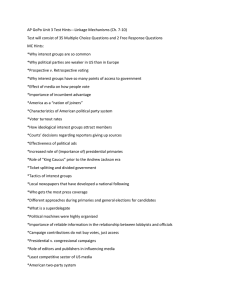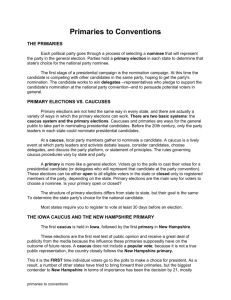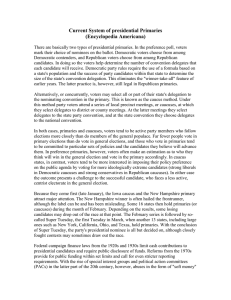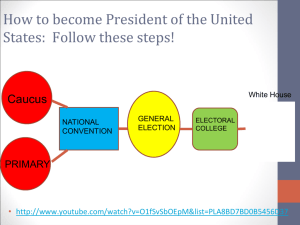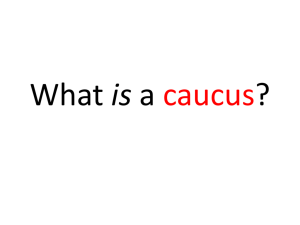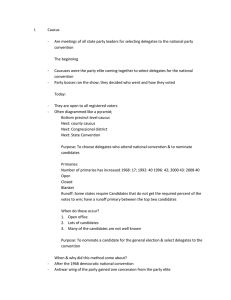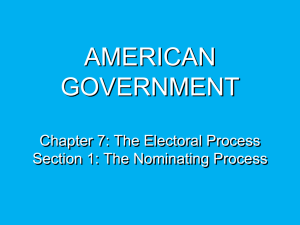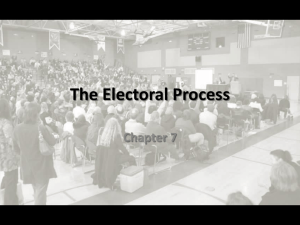Caucus vs. Primary - Bernie Sanders Video
advertisement
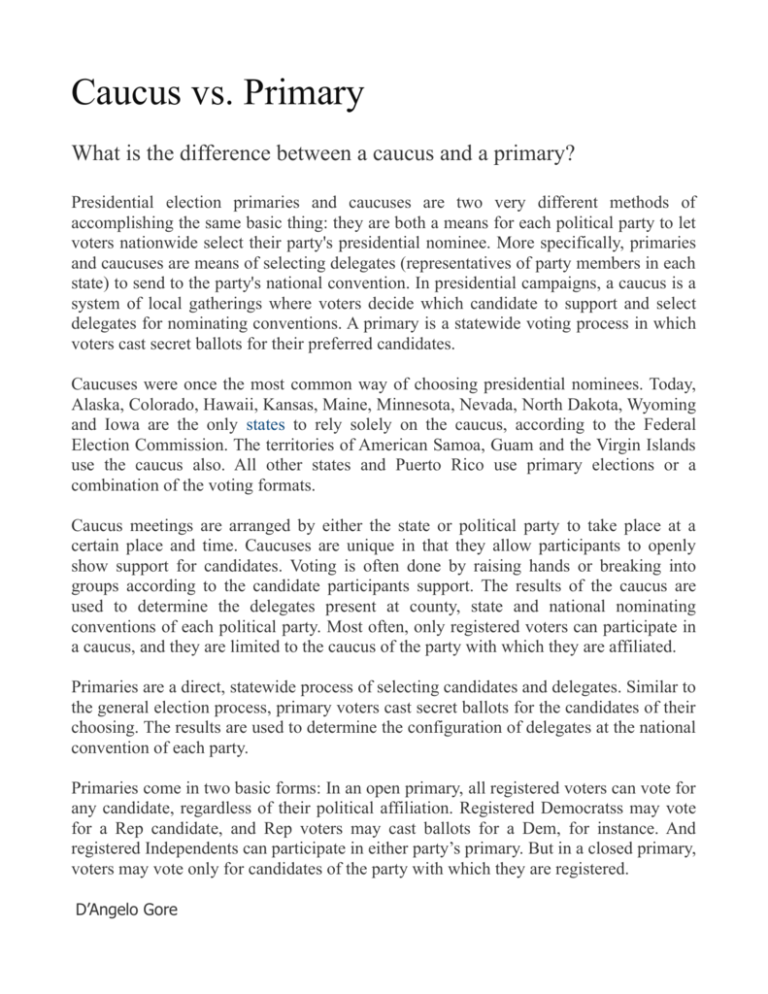
Caucus vs. Primary What is the difference between a caucus and a primary? Presidential election primaries and caucuses are two very different methods of accomplishing the same basic thing: they are both a means for each political party to let voters nationwide select their party's presidential nominee. More specifically, primaries and caucuses are means of selecting delegates (representatives of party members in each state) to send to the party's national convention. In presidential campaigns, a caucus is a system of local gatherings where voters decide which candidate to support and select delegates for nominating conventions. A primary is a statewide voting process in which voters cast secret ballots for their preferred candidates. Caucuses were once the most common way of choosing presidential nominees. Today, Alaska, Colorado, Hawaii, Kansas, Maine, Minnesota, Nevada, North Dakota, Wyoming and Iowa are the only states to rely solely on the caucus, according to the Federal Election Commission. The territories of American Samoa, Guam and the Virgin Islands use the caucus also. All other states and Puerto Rico use primary elections or a combination of the voting formats. Caucus meetings are arranged by either the state or political party to take place at a certain place and time. Caucuses are unique in that they allow participants to openly show support for candidates. Voting is often done by raising hands or breaking into groups according to the candidate participants support. The results of the caucus are used to determine the delegates present at county, state and national nominating conventions of each political party. Most often, only registered voters can participate in a caucus, and they are limited to the caucus of the party with which they are affiliated. Primaries are a direct, statewide process of selecting candidates and delegates. Similar to the general election process, primary voters cast secret ballots for the candidates of their choosing. The results are used to determine the configuration of delegates at the national convention of each party. Primaries come in two basic forms: In an open primary, all registered voters can vote for any candidate, regardless of their political affiliation. Registered Democratss may vote for a Rep candidate, and Rep voters may cast ballots for a Dem, for instance. And registered Independents can participate in either party’s primary. But in a closed primary, voters may vote only for candidates of the party with which they are registered. D’Angelo Gore
